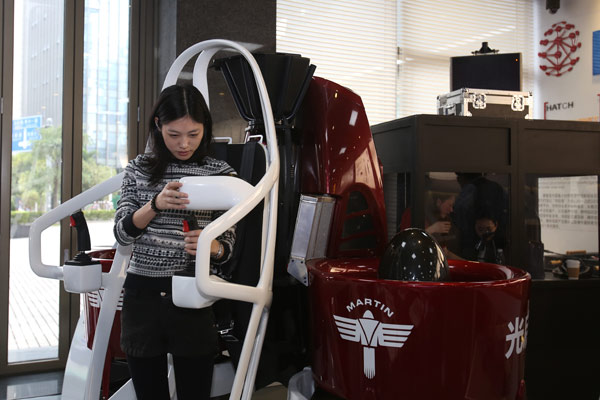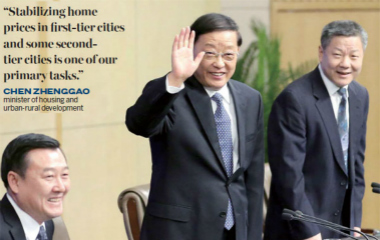Economists call for global vision in Chinese manufacturing
Updated: 2016-03-19 16:44
By Deng Yanzi in Shenzhen(chinadaily.com.cn)
|
|||||||||
 |
|
A woman puts her hands on a gadget on display. [Photo by Zheng Erqi/chinadaily.com.cn] |
Wang singled out the significance of compliance for judging global corporations, noting such firms must follow international rules in the age of globalization.
"Global corporations from abroad have brought energy to China's economic growth and catalyzed economic transformation. Such corporations from China, meanwhile, promote the fusion of China's economy with the world," Wang said, adding both types of firms are significant for the next stage of China's development.
Denis Depoux, Asia deputy president of Roland Berger saw valuable implications in Europe's "Industry 4.0" initiative on China's transformation. He pointed out that Manufacturing China 2025 is part of a global competition, in which major countries share the goal of reinventing their manufacturing and the industrial supply chain.
"Chinese manufacturing companies should follow a gradual approach to avoid pitfalls in this transformation," he warned.
He also urged the Chinese companies to adopt a market-oriented mindset. "Let's not forget about the market. This (Industry 4.0) is not only about modernization, but to simply make China's manufacturing fit for higher quality, higher efficiency, more connection with the end-user market, simply because we're in a volatile, uncertain world. It's not only following government policy for the sake of following government policy."
Zhang Jing'an, former member of the leading party group at Ministry of Science and Technology, reminded the audience that "Made-in-China" should never be discarded in the process of modernization, to avoid traps and challenges such as the hollowing-out effect in US after it relocated its manufacturing decades ago.
"While China's manufacturing industry is embracing opportunities brought by the integration of 'Made in China' and 'Created in China', it is also faced with challenges including the disruptive innovation of US manufacturing and the 'Industry 4.0'. But I'm confident that our reform policies will deal with these challenges," Zhang said.
He also pointed out that the relationship between the government and the market will be the most important problem for China's reform down the road.
"Even though we've made huge achievements in the process of economic transformation, they came at a hefty cost, such as the environment. We know well that we have to solve those problems, but what makes it so hard is the way we deal with the government-market relationship."
"In the past, reform largely relied on administrative ways, in which the government might not have been in the right place. That's why we need to innovate from the corporate side in the future. We should use companies like IngDan to help entrepreneurs to innovate in the global market without fear, and offer them good services," Zhang said.
"In the past two years, we have used IngDan as an international platform to connect global IoT innovators and entrepreneurs with Shenzhen-based manufacturing resources. we've attracted over 10,000 IoT projects, roughly 80 percent are from China and the rest are form overseas," Jeffrey Kang, Founder, Chairman, and CEO of Cogobuy and IngDan, explained.
Today's Top News
Paris attacks suspect wounded in Brussels shootout
China's latest GDP target is attainable: OECD Chief
What makes the middle class tick
One-stop app
EU to pitch migrant plan to Turkey
DPRK fires medium-range ballistic missile
Virgin Atlantic investigates abuse case
as story goes viral
Shanghai firm is latest Chinese investment in UK soccer business
Hot Topics
Lunar probe , China growth forecasts, Emission rules get tougher, China seen through 'colored lens', International board,
Editor's Picks

|

|

|

|

|

|






